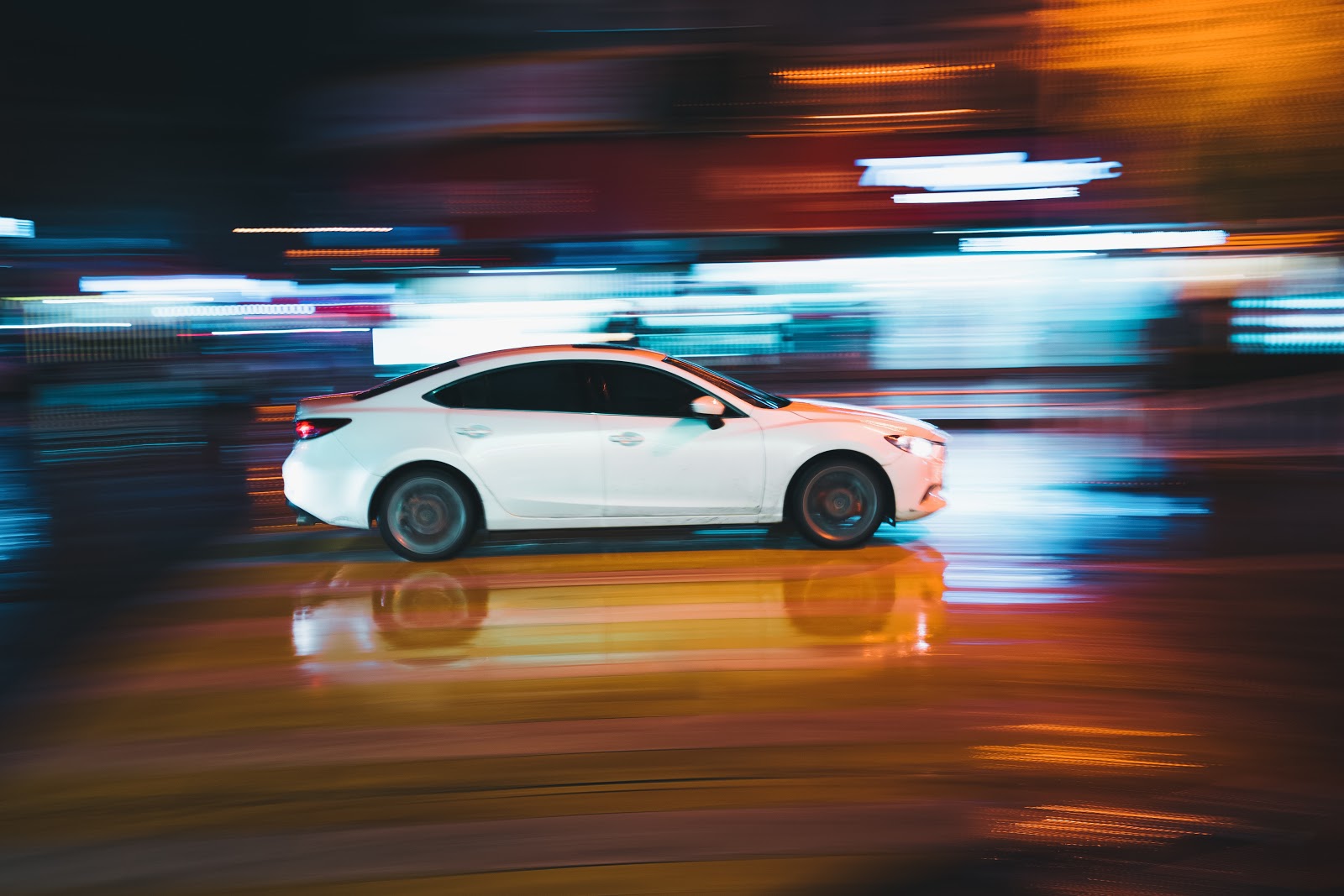Traffic: Why We Drive the Way We Do (and What It Says About Us) – Tom Vanderbilt. Traffic is full of interesting stats about how and why Americans drive the way they do. Vanderbilt tries to figure out why Americans behave the way they do inside their cars: tailgating, road rage, aggressive driving etc. It is fairly dense and reads more like an academic paper with a little humor thrown in for good measure than books like Freakonomics or Outliers, but is worth checking out. Among other things, the book looks at why people say “I got stuck in traffic” or “I got hit by a car” rather than “I got stuck in people” or “I got hit by a driver.”
– Tom Vanderbilt. Traffic is full of interesting stats about how and why Americans drive the way they do. Vanderbilt tries to figure out why Americans behave the way they do inside their cars: tailgating, road rage, aggressive driving etc. It is fairly dense and reads more like an academic paper with a little humor thrown in for good measure than books like Freakonomics or Outliers, but is worth checking out. Among other things, the book looks at why people say “I got stuck in traffic” or “I got hit by a car” rather than “I got stuck in people” or “I got hit by a driver.”
I really enjoyed his thoughts on merging from two lanes to one lane. An easy example is a construction zone on the highway. Usually about a mile ahead of the lane closure, drivers will see a sign that says “left lane closed 1 mile, merge right.” Do you merge right away or do you wait until the end and try to move over then? Many people move over right away, but Vanderbilt cites a study that shows that it is actually better to merge late because it fully utilizes the available road space up until the last minute. The study found that there were fewer accidents and quicker communes if people merged late. As a late merger myself (who has been yelled at by both friends and family for it), it was great to have my ideas confirmed by an actual study. Check out Traffic if you are interested in reading about America’s traffic problem.
Kitchen Confidential Updated Ed: Adventures in the Culinary Underbelly (P.S.) – Anthony Bourdain – I’m a huge fan of Anthony Bourdain’s show on the Travel Channel, No Reservations, so I had to pick up Kitchen Confidential. Bourdain grew up wanting to cook and Kitchen Confidential details his rise from a cocky, inexperienced line cook to a successful head chef at a NYC French restaurant. Kitchen Confidential is billed as a look behind the scenes of restaurants in New York City during the 80s. Bourdain battles drugs, the mafia, spiteful and dumb owners and many other problems in his quest to be a good chef. From seeing his show, I hadn’t realized how deep into drugs he was in his past.
– Anthony Bourdain – I’m a huge fan of Anthony Bourdain’s show on the Travel Channel, No Reservations, so I had to pick up Kitchen Confidential. Bourdain grew up wanting to cook and Kitchen Confidential details his rise from a cocky, inexperienced line cook to a successful head chef at a NYC French restaurant. Kitchen Confidential is billed as a look behind the scenes of restaurants in New York City during the 80s. Bourdain battles drugs, the mafia, spiteful and dumb owners and many other problems in his quest to be a good chef. From seeing his show, I hadn’t realized how deep into drugs he was in his past.
While I enjoyed many of his war stories about crazy owners, chefs and his escapades as a young, drugged out cook, I was really interested in his chapters about cooking, traveling and the restaurant business. Bourdain spends a chapter explaining how to spruce up home cooked meals so that they taste (and look) more like they were created in restaurants. There are a few chapters on what makes or breaks restaurants and how to spot a failing restaurant from a well run place. I was most interested in the chapter about his first trip to Japan.
Bourdain talks about being completely immersed in a foreign culture where he couldn’t communicate. After the first few days of wandering around, he finally works up the courage to walk into a noodle shop and point to what the guy sitting next to him was eating to order “whatever he was having.” Bourdain’s story about being worried what others would think, but then deferring to the rest of the people made me think of a time I was in France for the Confederations Cup in 2003. We were in a restaurant where nobody spoke any English and simply pointed to another table to say “we’ll have that.” It ended up being a great meal. Bourdain’s book is a quick read and shows how he launched himself into TV stardom. It’s well worth the read.
The Help – Kathryn Stockett. The Help pulls the lid off of a social circle in Jackson, Mississippi during the heart of the civil rights movement, but tells the story from the perspective of the maids who work in white family homes. The book is very well written and a fun read, even though it deals with some heavy subjects. Stockett makes you feel like you are listening to the thoughts of each character, using unique metaphors throughout the book.
– Kathryn Stockett. The Help pulls the lid off of a social circle in Jackson, Mississippi during the heart of the civil rights movement, but tells the story from the perspective of the maids who work in white family homes. The book is very well written and a fun read, even though it deals with some heavy subjects. Stockett makes you feel like you are listening to the thoughts of each character, using unique metaphors throughout the book.
Some of the chapters are a little slow to get through because Stockett uses the dialect that some maids would have used in the 60s. It’s a little hard to get used to, but by the 2nd or 3rd chapter, you are up to speed. It’s completely worth it. Without spoiling the book, it was interesting to read about some of the double standards that white women had in the 60s. White women were perfectly happy to allow their maid to touch their child when the maid was cleaning, feeding or clothing their child, but they would not let the maid sit in the same room to eat or use the guest bathroom. It seems like a convenient suspension of segregation that, looking back, does not make any sense (not that segregation made any sense at all.) The Help is a really good book and potentially one of my favorites for the year.


![Reblog this post [with Zemanta]](http://img.zemanta.com/reblog_e.png?x-id=605de73f-bc35-45f4-9df3-7fecb36119cc)